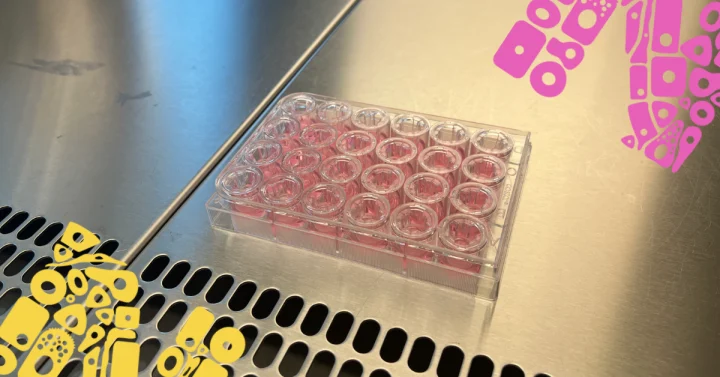New Product Launched – aProximate™ Assay-Ready Plates for transporter studies
It is now easier than ever to perform kidney transporter studies in your lab using a freshly isolated, human, in vitro model. Newcells has recently launched the new human aProximate™ Assay-ready plates.

aProximate™ is one of the most advanced, near physiological, in vitro, human primary PTC model commercially available and is now available to use in your lab. aProximate™ has a number of advantages over other existing models: (i) it is a primary cell model derived from fresh human kidney tissue, (ii) the PTC layer is polarised and forms tight junctions, and (iii) it expresses relevant kidney transporters that are essential for drug handling. aProximate™ retains the expression of over 20 relevant kidney transporters such as OATs, OCTs, and MATEs and two endocytic receptors megalin and cubilin, all of which are only expressed at low levels in other primary and immortalised PTC models.
aProximate™ Assay-ready plates are ethically sourced and quality controlled for the absence of human viruses. The cells are shipped at 4oC in stasis media and require revival at 37oC prior to use. The model is provided with cell culture maintenance media and user guide with a detailed protocol for cell recovery upon receipt. Cell recovery is assessed by measuring TEER (transepithelial electrical resistance). When TEER measurements reach a minimum of 60 Ω.cm2, the cells are ready to assay. Recovery of cells usually takes between 1 and 3 days. The cells must be revived immediately upon receipt and must not be frozen. You can watch a short video on the revival of aProximate™ Assay-ready plates here.
So why are kidney transporter studies crucial during drug development? Early understanding of drug handling in kidney PTCs is key to mitigating the risk of drug attrition, especially as several drugs and metabolites are handled by the same transporters. For example, creatinine, an endogenous metabolite, and the immunomodulating drug pyrimethamine are both substrates for basolateral OCT2 and apical MATE transporters. OATs and MATEs transport organic anions, organic compounds like creatinine but also organic cationic drugs, such as metformin, a common drug used to treat Type 2 diabetes. The excretion of creatinine can be blocked by administering transporter inhibitors such as cimetidine and pyrimethamine. In addition, inhibition of OCT and MATE transporters by cimetidine and pyrimethamine in vivo also reduces metformin renal clearance. Cimetidine interferes with the uptake of metformin by PTCs and pyrimethamine with efflux of metformin. In vivo, this leads to a significant increase in systemic exposure and a decrease in metformin renal clearance because metformin and pyrimethamine compete for efflux mediated by MATEs. These complex drug transporter interactions can be evaluated in vitro in human aProximate™ PTCs prior to or during clinical trial to help understand possible drug-drug interactions.
If you are interested to know more about aProximate™ Assay-ready plates and how we have validated the model then visit our product page. aProximate™ has been used by clients for regulatory applications and has been well-received by regulatory agencies.
Share on social media:
Don't miss out on our latest innovations: follow us on Linkedin
Newcells Biotech
13th July, 2022
Products
Kidney



